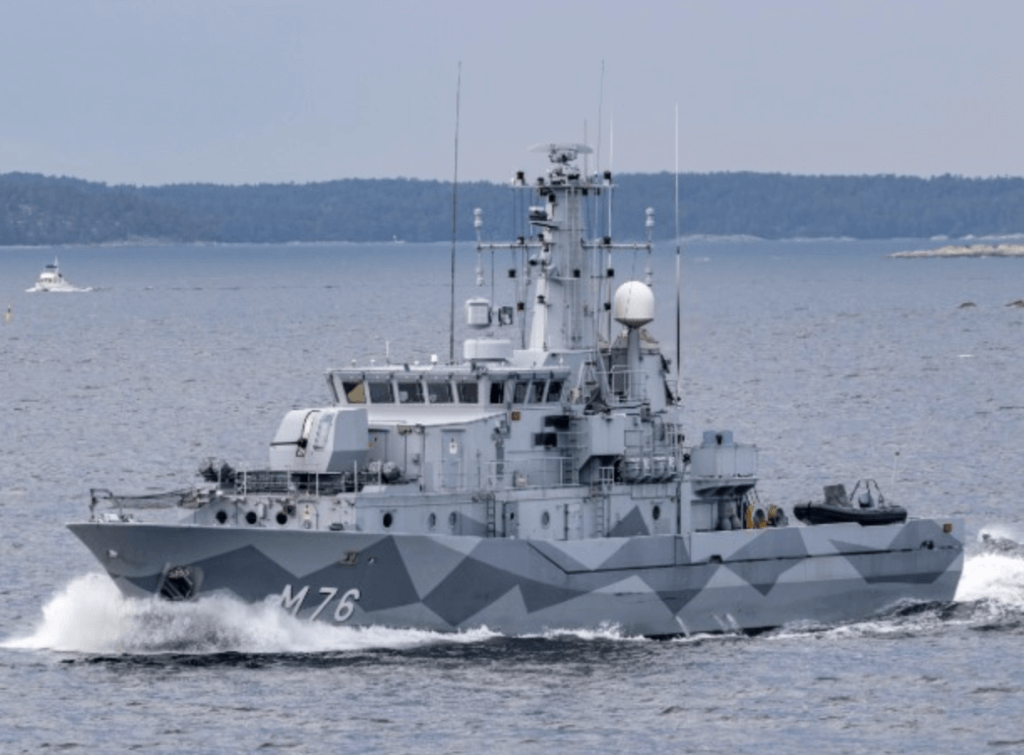
Image: ln24SA
NATO has announced plans to deploy additional ships and aircraft in the Baltic Sea following a series of suspicious cable breaches that have raised significant security concerns in the region. The alliance’s decision comes amid growing fears of potential sabotage or deliberate attacks on vital underwater infrastructure, which could disrupt communication and energy supplies across Europe.
The breaches, which were discovered in recent days, have targeted key underwater cables used for both civilian and military purposes. These cables are crucial for the transmission of data, telecommunications, and energy, and any disruption to them could have severe geopolitical and economic consequences.
NATO officials have expressed serious concern over the breaches, with some speculating that they could be part of a coordinated effort by state or non-state actors to destabilize the region. The Baltic Sea, which is home to critical energy and communications infrastructure, has long been considered a hotspot for geopolitical tensions, particularly with Russia’s military activities in the area.
“The security of undersea cables is of paramount importance to NATO, especially given the strategic nature of the Baltic region,” NATO Secretary General Jens Stoltenberg said in a statement. “We will deploy additional resources, including naval ships and aircraft, to monitor and secure the area. Our mission is to ensure the safety of vital infrastructure and to deter any hostile activities that threaten the stability of our member states.”
As part of the increased security measures, NATO has confirmed that additional ships, including surveillance vessels and mine sweepers, will be stationed in the Baltic to monitor the situation. In addition, aircraft equipped with advanced surveillance technology will patrol the skies to provide real-time intelligence on any potential threats.
The alliance’s actions come as countries bordering the Baltic Sea, including Denmark, Sweden, Finland, and the Baltic states—Estonia, Latvia, and Lithuania—have expressed heightened concerns about their security in light of the recent cable breaches. The area has seen a significant uptick in military activity over the past few months, with both NATO and Russia increasing their presence as tensions continue to rise.
While the causes of the cable breaches are still under investigation, experts believe that they could be the result of deliberate sabotage rather than accidents. The timing of the breaches, coming after months of rising tensions in Eastern Europe and the Baltic region, has fueled suspicions of intentional interference by hostile actors.
The underwater cables targeted are primarily involved in communications and data transmission, which could be used to disrupt or gather intelligence on military operations, energy flows, and communication networks across NATO member states. In particular, cables that connect NATO’s communications infrastructure with European energy grids are seen as potential vulnerabilities.
The breach of undersea cables, while not unprecedented, highlights the vulnerabilities of critical infrastructure in the face of evolving threats. The Baltic Sea has become a key battleground for both military and cyber operations, and any compromise of its infrastructure could have far-reaching consequences for Europe’s energy security and the wider transatlantic alliance.
In recent years, Russia has been accused of various forms of hybrid warfare, including cyber-attacks, disinformation campaigns, and interference with critical infrastructure. While no direct evidence has been presented linking Russia to the recent breaches, the suspicion of state-sponsored involvement continues to loom large.
The decision to deploy additional NATO assets to the Baltic Sea is also seen as a show of unity and strength among NATO members. The alliance has been under pressure to demonstrate its ability to protect vital infrastructure and to send a clear message to any potential aggressors that attacks on NATO member states’ infrastructure will not be tolerated.
“This is about showing resolve,” said Stoltenberg. “NATO stands united in ensuring the security of our infrastructure, our borders, and our values. The Baltic Sea is a critical part of our collective defense, and we will not allow any threat to go unanswered.”
NATO and its member states are continuing their investigation into the breaches, working closely with intelligence agencies and cybersecurity experts to determine the source and method of the attacks. While the immediate response has focused on strengthening security and deterrence, longer-term efforts to bolster infrastructure resilience and cybersecurity are also expected.
As the situation develops, NATO has urged all member states to remain vigilant and to take necessary precautions to protect their infrastructure from potential future attacks. The alliance has also called for greater international cooperation in securing critical global infrastructure, given the growing reliance on underwater cables for global communications and trade.
Get the latests of our Loveworld News from our Johannesburg Stations and News Station South Africa,LN24SA
Related Posts
Some description text for this item
